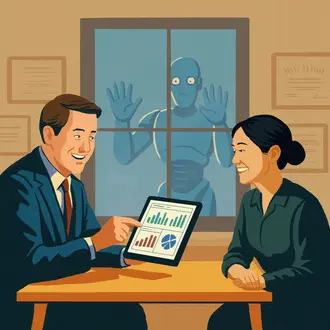MIT Sloan finance professor Andrew Lo is working to solve global issues through his studies of financial markets. He’s also applying his research on risk to a problem that’s not quite as conventional for a financial scholar: curing cancer.
Why adaptive behavior is important to your work
“We have to start by studying the ecosystem and understanding what our role is in that system. A lot of investors and businesspeople don't really think broadly about the particular avenues of interactions that they normally engage in across the various different stakeholders. They focus on the particular markets that they're involved in and the particular customers or suppliers that they deal with, but the system — we've learned — is very highly interconnected, and certain parts of the system that may have nothing to do with a given business could actually be an incredible source of value or devastation if shifts occur over the course of a few months.”
Data that matters
“Initially, I thought that a cancer patient needed a financial economist about as much as a fish needs a 401(k) plan. We didn't have a whole lot to contribute, but the more I studied the ecosystem of cancer drug development, I realized that there was actually an important bottleneck. And that bottleneck is in the early stages of drug development where the risks are greatest but where the impact could also be equally important.
“And in order to get beyond the so-called valley of death, you really need to figure out a different way of reducing those risks, and that's where finance comes in. Financial economists are exceedingly good at thinking about financial structures that reduce risk and enhance reward, one example of which is portfolio theory. Taking a bunch of unrelated objects and putting them into a single financial vehicle can reduce the risks and increase the chances of one or two home runs. That's the focus of my co-authors and I when we started in 2012 and 2013, putting together these various simulations of large portfolios of biomedical projects.
“And if they're structured in the right way, it turns out that we can tap much, much larger pools of capital. For example, using cancer bonds. Debt markets are much larger than equity markets, and so by using these new vehicles, we can actually get through the valley of death by bringing new investors into the marketplace.”
What should you focus on in the future?
“It's really about taking chances on long shots, and one of the things that financial economists know is that the more chances you take, the more likely it is that you're going to succeed with any given long shot.”
What to read after you listen
Why financial markets behave like living organisms




